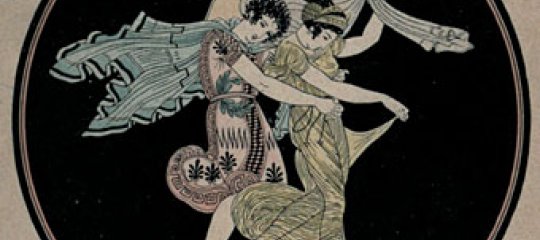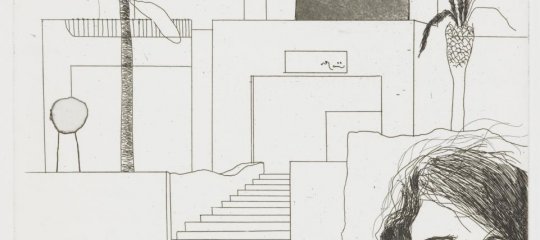Πλάνο διαλέξεων ακαδ. έτους 2007-8 για το μάθημα Έισαγωγή στη ΝΕ λογοτεχνία'
tzanidaki writes, "Το μάθημα απευθύνεται στους 2ετείς, University of Reading, department of Classics
Introduction to Modern Greek Literature
Lecturer: Dr Dimitra Tzanidaki-Kreps
Department of Classics, Reading University"
10 Απριλίου 2008
INTRODUCTION TO MODERN GREEK LITERATURE
Univ. Of Reading, Classics
LECTURE PLAN by Dr Dimitra Tzanidaki-Kreps
Week 1: Literature for a New Nation: 1821-1881.
From “Great Idea” to Aftermath of Disaster 1881-1928
Reading:
Beaton, R. 1999: An Introduction to Modern Greek Literature. Clarendon Press, Oxford.
Week 2: GEORGIOS VIZYiNOS
Biography-My Mother’s Sin
Week 3: The only journey of his life
Essay: Self-punishment and guilt are the two constants in the Mother’s emotional landscape. Is there redemption for the Mother following her confession in the meeting with the Patriarch. What is the final and lasting impression of the novel to you?
Reading:
Syrimis, George 1995. Gender, Narrative Modes and the Procreative cycle: The Pregnant Word in Vizyenos, Journal of MG studies, 13/2: 327-49.
Barbeito, Patricia Felssa 1995. Altered States: Space, Gender, and the (Un)making of Identity in the short stories of Giorgios M. Vizyenos, Journal of MG studies 13/2:299-326
Beaton, Roderick (ed.) 1988a. The Greek Novel: AD 1-1985 (London and Sydney: Croom Helm)
Chryssanthropoulos, Michalis, 1988. Reality and Imagination: The use of History in the Short Stories of Vizyenos, in Beaton (ed.), 1988a: 11-22
Peckam, R. Shannan 1995. Memory and homelands: Vizyinos, Papadiamantis and Geographical Imagination, Kambos Papers in MG (university of Cambridge), 3: 95-123.
Peckam, R. Shannan 1996. Between East and West: The border writing of Yeoryios Vizyinos, E*****ene 3/2: 167-80.
Week 4 C. P. CAVAFY
Biography-Kaisarion
Week 5: Young Men of Sidon – Melancholy of Jason Kleander, Poet in Kommagini, A.D. 595
Essay: Caisarion also features in another of Cavafy’s poems entitled “Alexandrian Kings” and there is also a passing reference in one more of his poems (The sculptor Tyaneys). Read all three poems and explain why Caisarion commands such a poetic charm upon Cavafy.
Reading:
Robinson, C. 1988. C.P. Cavafy, Bristol Classical Press.
Joseph, Brian (ed.) 1987b. The poetics of Cavafy: Textuality, Eroticism, History (Princeton University Press).
Keeley, Edmund 199a. Cavafy’s Alexandria: Study of a Myth in progress (Princeton University Press).
Keeley, Edmund 1983: Voice, perspective and context in Cavafy, Modern Greek Poetry, Voice and Myth. (Princeton, New Jersey)
Vayenas, Nasos 1979a: The language of irony (towards a definition of the poetry of Cavafy), Byzantine and Modern Greek Studies, 5: 43-56.
Nehamas, A. 1983: Memory, pleasure and poetry: the grammar of the self in the writing of Cavafy. JMGS, 1: 259-319.
Alexiou, M. 1983: Eroticism and poetry, in C.P. Cavafy. Special double issue of the Hellenic Diaspora, vol. 10: 45-65.
Beaton, R. 1982. C. P. Cavafy: irony and Hellenism, Slavonic and East European Review, 59/4: 516-28.
Beaton, R. 1983: The history Man, in C.P. Cavafy. Special double issue of the Hellenic Diaspora, vol. 10: 23-44.
Agapitos, P. 1994. Byzantium in the poetry of Kostis Palamas and C. P. Cavafy , in Campus Cambridge Papers in MG, 2: 1-20.
Liddell, R. 2002. Cavafy: A Biography, Introduction by P. Mackridge.
Week 6: In search of a new national identity 1929-1949
GEORGE SEFERIS ‘Last stop’
Biography
Last stop
Essay: Detail the issues raised by both poems and the poet’s response to these issues taking into account the historical co-ordinates of the poems.
Reading:
Beaton, R. 1991. George Seferis, Bristol Classical Press.
Beaton, R. 2003. George Seferis: Waiting for the Angel A Biography, Yale University Press.
Dimiroulis, Dimitris 1985: The Humble Art and the Exquisite Rhetoric: Tropes in the Manner of George Seferis, in M. Alexiou and Lambropoulos 1985, 59-84
Thaniel, George 1977: George Seferis’s Thrush: A Modern Descent, Canadian Review of Comparative literature, 4: 89-102.
Beaton, R. 1987. From Mythos to Logos: the poetics of George Seferis. JMGS 5: 135-52.
Keeley, Edmund 1983: George Seferis and the mythical method, in E. Keeley, Modern Greek poetry: Voice and Myth (Princeton, New Jersey)
Ricks, David 1989: The shade of Homer: a study in Modern Greek poetry, Cambridge: CUP.
Krikos-Davis, K. 1979: On Seferis “Helen”, Byzantine and Modern Greek Studies 5: 57-76.
Krikos-Davos, K.: Notes on Seferi’s “last poem”, Scandinavian Studies in MG 708: 101-6.
Beaton, R. 2001: Reading Seferi’s politics and the politics of Reading, in Campus Cambridge Papers in MG, 9: 1-35.
Kostiou, Katerina 2001: Irony and satire in George Seferi’s poetry, in Campus Cambridge Papers in MG, 2: 57-82.
Week 7: George Seferis: Helen
Week 8: The aftermath of War and Civil War 1949-1967
YANNIS RITSOS
Biography-The Moonlight Sonata
Essay: Discuss the theatrical elements of the poem and their overall function in the poetic ambience.
Reading:
Robinson, C. 1994: The presentation of place and space in the poetry of Yannis Ritsos, 1934-1947, in Campus Cambridge Papers in MG, 2: 73-94.
Week 9: ODYSSEAS ELYTIS
Biography-Small Green Sea
The Mad Pomegranate
Marina of the Rocks
Essay: Elytis, Poetry and poetic symbols: Discuss their relationship
Reading:
Friar, K. 1974: The Sovereign Sun-introduction.
Keeley, Edmund 1983: The voices of “TO Axion esti” and Elytis and the Greek tradition, Modern Greek poetry: Voice and Myth (Princeton, New Jersey)
Mackridge, P. 1984: A matter of light and death, Folia Neohellenica 6.
Robinson, C. 1981: The Greekness of Modern Greek Surrealism, Byzantine and Modern Greek Studies 7.
Week 10: Post-war fiction
YORGOS IOANNOU
Biography-The *****s comb
Essay: Unlike most of Ioannou’s short novels, which are written in the 1st person singular in this one the 2nd singular is used. Discuss the reason(s) for this switch, its “poetic” effect and its justification.
Reading:
Germanacos, N.C. 1973: An interview with three Greek prose writers (May 1972): Stratis Tsirkas, Thanassis Valtinos, George Ioannou, Boundary 2, ½: 266-313.
Robinson, Christopher: Fragmentation in lie and art. In Cambridge Papers in MG, no. 9 2001
Anna di Benedatto Zimbone, Ghiorgos Ioannu: saggio critico, Universita di Catania 1994
A. Droukopoulos: Giorgos Ioannou: enas odigos gia tin anagnosi tou ergou tou. Athens
1992
Summer Term Week 1: Exam preparation-Revision
- Εισέλθετε στο σύστημα για να υποβάλετε σχόλια










